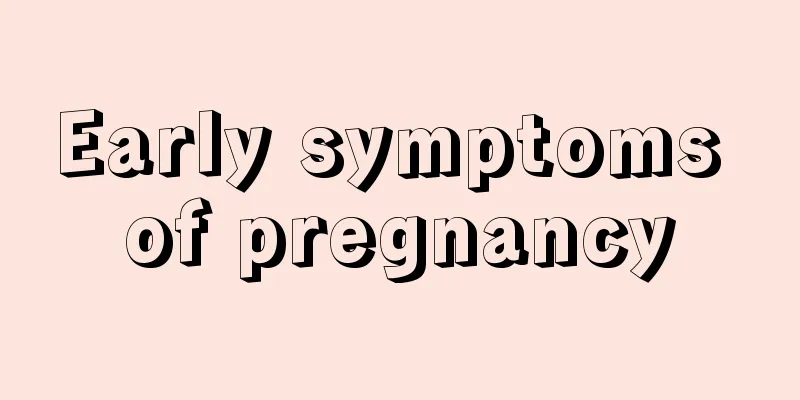How much harm does abortion do to women?

|
Abortion is a method of artificial abortion, which is mainly used to treat situations where pregnancy cannot continue. Due to one's own physical condition or other reasons such as fetal incomplete development, abortion treatment is needed. Abortion treatment can have a very negative impact on the body, so generally it is best not to choose it. So how much harm does abortion do to women? Let us introduce it below. 1. Cause endocrine disorders. After pregnancy, the amount of progesterone in a woman's body will increase, the endometrium will thicken, and the breasts will enlarge, thus laying the foundation for the growth of the fetus. However, untimely abortion will cause sudden changes in the body's endocrine system. If the body has not yet adjusted and an abortion is then performed, it will cause endocrine disorders. 2. Damage the endometrium. Every abortion may damage the endometrium. The more times the scraping is performed, the more serious the damage to the endometrium will be. In severe cases, it may even cause uterine perforation. It is also easy for placenta implantation and adhesion to occur when pregnant again, causing dystocia and postpartum hemorrhage. 3. Endometriosis: Repeated dilation of the cervical canal can easily cause damage and adhesion of the cervical canal, leading to menstrual blood retention, triggering endometriosis and causing dysmenorrhea. 4. Pelvic inflammatory disease: Multiple abortions will increase the chance of intrauterine infection and the incidence of pelvic inflammatory disease. In severe cases, it can also lead to intrauterine adhesions and menstrual disorders. If pelvic inflammatory disease recurs, it will cause chronic lower abdominal pain, seriously affecting women's quality of life in the future. 5. Infection: Some informal clinics have incomplete facilities and lax disinfection, which can easily cause infection to the mother. 6. Infertility: According to relevant reports, the infertility rate caused by unmarried abortion (especially first-born abortion) is as high as 10%. The reasons may be postoperative adhesion of the cervix and uterine cavity, affecting pregnancy; it may also be postoperative obstruction of the fallopian tubes or disorder of fallopian tube motility; or due to repeated suction and scraping, the endometrium becomes thinner and thinner, and there is no good "soil" needed for the fertilized egg to implant, affecting embryonic development, and in severe cases, causing lifelong infertility. After reading the above introduction, everyone should have a clear understanding of how much harm abortion can cause to women. In such a situation, you should pay attention to taking contraceptive measures in normal times and try to reduce miscarriage as much as possible so as not to cause greater harm to your body. If you have a miscarriage, you should take timely care of your body. |
<<: Can I eat spirulina during menstruation?
>>: Can I take a shower during menstruation?
Recommend
Fungal otitis
Fungal otitis is an ear disease caused by fungi s...
Is it painful for the female to have IVF?
Many female friends may easily suffer from infert...
Can I eat three yellow chicken during menstruation?
Three-yellow chicken is the kind of chicken we ea...
Why is red wine sealed with a cork and placed horizontally? The correct way to open the bottle will save you from embarrassment
Many people like to drink alcohol. There are many...
Why does the uterus hurt when it is pricked with a needle?
Needle-like pain in the uterus is a relatively co...
What causes postpartum urticaria? These may be the reasons!
Urticaria is the well-known hives. The most direc...
What is the difference between BB cream and CC cream? Does BB cream have a barrier effect?
Applying BB cream when going out can protect again...
Deep cervical erosion
The severity of cervical erosion can generally be...
Is it suitable to have massage during menstruation?
Proper massage during menstruation is also benefi...
What are the symptoms of postpartum qi and blood deficiency?
After giving birth, women are often weak and need...
Which types of HPV are safe
HPV infection is mainly transmitted through sexua...
Adult glasses should not be treated carelessly! How to choose glasses?
Adult glasses should not be treated carelessly! H...
Who needs to have a cancer prevention physical examination?
1. Cancer prevention physical examinations are ma...
Diet therapy for uterine maintenance
We all know that medicine is three-part poison. I...
Twitter official: The number of robot accounts on the Twitter platform accounts for less than 5%
Will Elon Musk actually buy Twitter after all? Fo...









